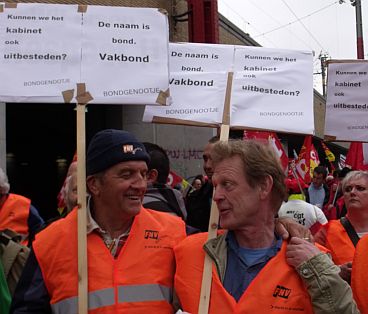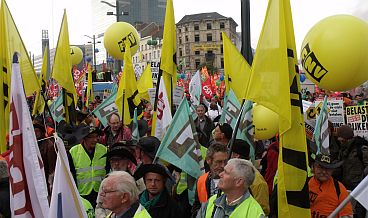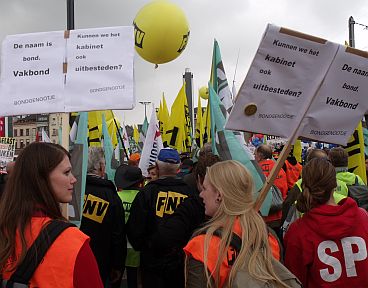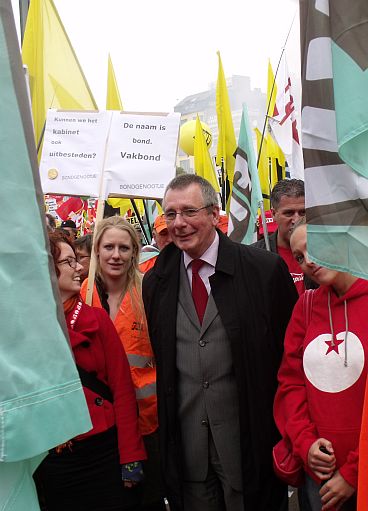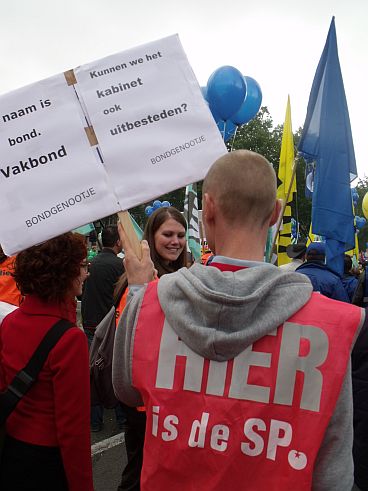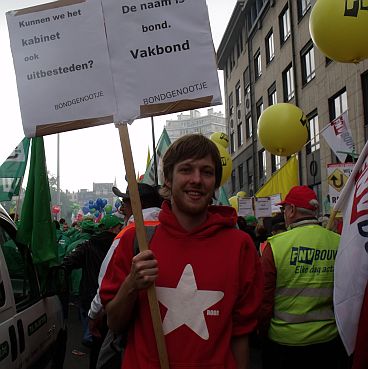Europe hinders social path out of crisis
Europe hinders social path out of crisis
On the day that around 100,000 people demonstrated in Brussels, the European Commission presented its proposals for harsh budgetary discipline. The Commission is obsessed with spending norms laid down in the Stability Pact and in general takes no account of the need to maintain good public services and social provision. Reacting to the Commission's proposals, Dennis de Jong, Member of the European Parliament for the SP, said that "ordinary people will thus have to pay for a crisis caused by grasping management and speculating bankers. In this Europe is showing its worst side."
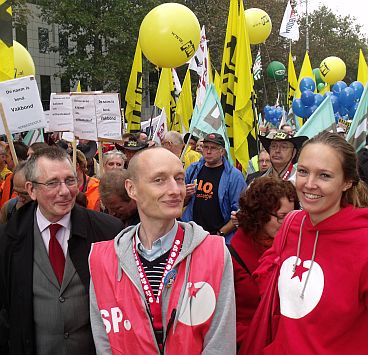
No social objectives
The European Commission's plans include automatic sanctions for member states which fail to reduce spending quickly enough. In addition the Commission could intervene in the case of member states if their economies become 'out of balance', a term which here refers to house prices, debts or trade deficits. "I don't see any social objectives," De Jong complains. "Why is the Commission not striving to reduce unemployment or poverty? I want to see a decent social alternative, but the Commission can only offer solutions from the neoliberal past."
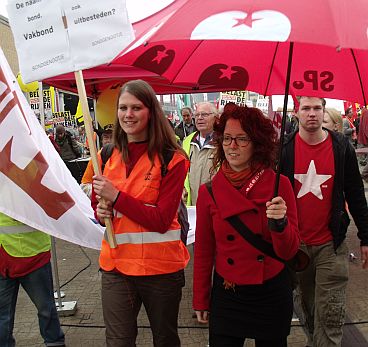
SP alternatives
The SP has already, in the European Parliament crisis committee, repeatedly raised proposals for a social route out of the crisis, urging more rapid extension of credit to small and medium-sized firms, state investment in green technologies and sustainable products, and the introduction of a tax on speculative transactions, a levy which would cover part of the cost. In addition the SP wants to see structural measures which would prevent a repeat of a crisis of such magnitude: the splitting up of banks and other more speculatively-established financial institutions, stronger and more decisive supervision and an end to the gigantic bonuses paid to bankers and management. These proposals were largely scrapped by centre-right (EPP) and centre-left (PSD) when the crisis committee's interim report came to the vote. As De Jong says, "the demonstration on the one hand and Brussels' proposals on the other show the enormous gap between the ivory Brussels towers and the street. What I take from it, however, is the confidence that elected representatives will eventually understand that it is ordinary people, and not the bankers, that they should be protecting."
Below is a photo-report of the demonstration:
